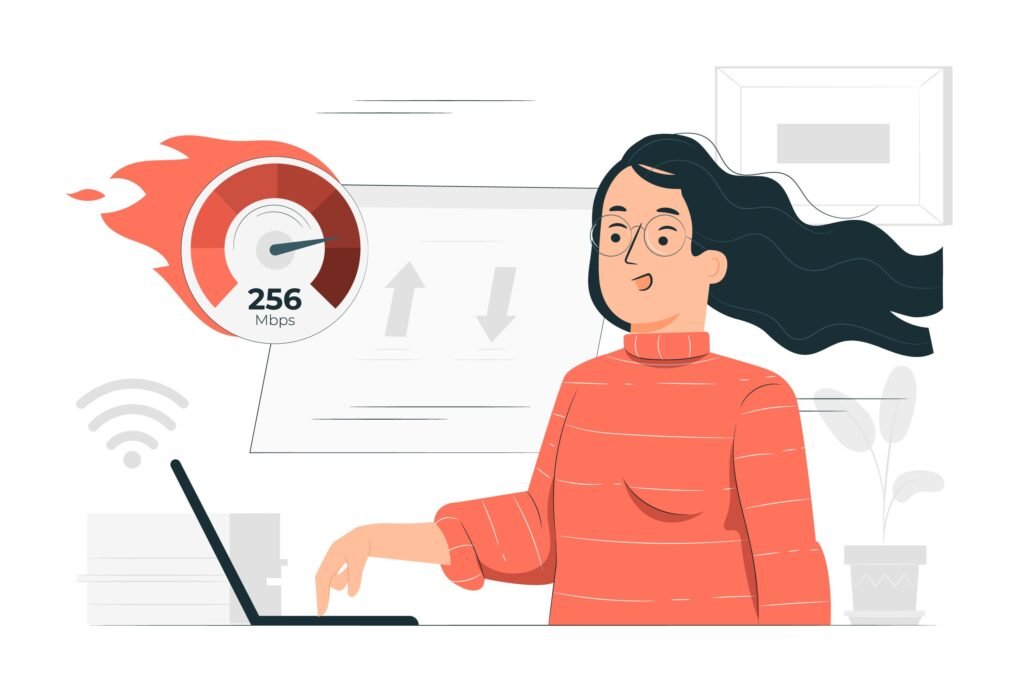
Choose a Fast and Reliable Hosting Provider
In today’s digital age, a website is often the first point of contact between a business and its potential customers. It serves as the online face of a company, showcasing its products, services, and values. Whether you’re a small startup or an established business, having a professional website is crucial to creating a strong online presence. For businesses in Chandigarh looking to build a stunning and functional website, Upbryt Technology stands out as the top choice for website design and development services.
Use a Lightweight Theme
- Why it matters: Heavy themes with unnecessary features can bloat your site, making it slower.
- Recommended Themes:
- Astra, GeneratePress, Neve, or OceanWP are lightweight and highly customizable.
- Tip: Avoid using themes with built-in page builders or excessive features that you don’t need
Optimize Your Images
- Why it matters: Large images slow down your site. Optimizing them can reduce load times significantly.
- Image Optimization Tools:
- Smush, ShortPixel, Imagify for compressing images.
- WebP format is more efficient than JPEG or PNG (consider using a plugin like ShortPixel to automatically convert images).
- Lazy Loading: Load images only when they come into view on the page to improve initial load speed.
- Plugin: WP Rocket or Lazy Load by WP Rocket (free).
Minify and Combine CSS, JavaScript, and HTML
- Why it matters: Reducing the size of your site’s code helps your pages load faster.
- How to Optimize:
- Autoptimize or WP Rocket to minify and combine your CSS, JavaScript, and HTML files.
- Defer JavaScript: Delay non-essential JavaScript (like third-party widgets) until after the page content has loaded.
- Tip: Test your site after combining files to ensure no functionality breaks.
Optimize Your WordPress Database
- Why it matters: Over time, your WordPress database accumulates unwanted data (like post revisions, spam comments, and transients) that can slow down your site.
- How to Optimize:
- Use WP-Optimize, Advanced Database Cleaner, or WP-Sweep to clean and optimize your database.
.
Reduce HTTP Requests
- Why it matters: Each external request (like scripts, images, and fonts) can add extra load time.
- What to Do:
- Limit the number of external scripts and resources.
- Self-host font files (like Google Fonts) rather than loading them externally.
- Remove unnecessary third-party scripts (social sharing buttons, etc.) unless needed.
Enable GZIP Compression
- Why it matters: GZIP compresses your website’s files before sending them to the browser, reducing load times.
- How to Enable:
- Enable via a caching plugin like WP Rocket or W3 Total Cache.
Update WordPress, Themes, and Plugins Regularly
- Why it matters: Keeping everything up to date ensures you’re running the latest speed improvements and security fixes.
- What to Do:
- Set automatic updates for minor WordPress releases.
- Regularly update themes and plugins to their latest versions.
- Test your site after every update to ensure everything works correctly.
Limit the Number of Plugins
- Why it matters: Each plugin can introduce extra scripts and code that can slow down your site. Use only essential plugins.
- What to Do:
- Audit your plugins regularly and remove any that are redundant or not in use.
- Choose plugins that are well-coded and lightweight.
Optimize Mobile Performance
- Why it matters: A significant amount of traffic comes from mobile devices, so it’s critical to ensure your blog is mobile-friendly and fast.
- What to Do:
- Use responsive themes that adapt to mobile devices.
- Use Google’s Mobile-Friendly Test to identify any mobile-specific issues.
- Test mobile load speed using Google PageSpeed Insights to make necessary adjustments.
Leave A Comment